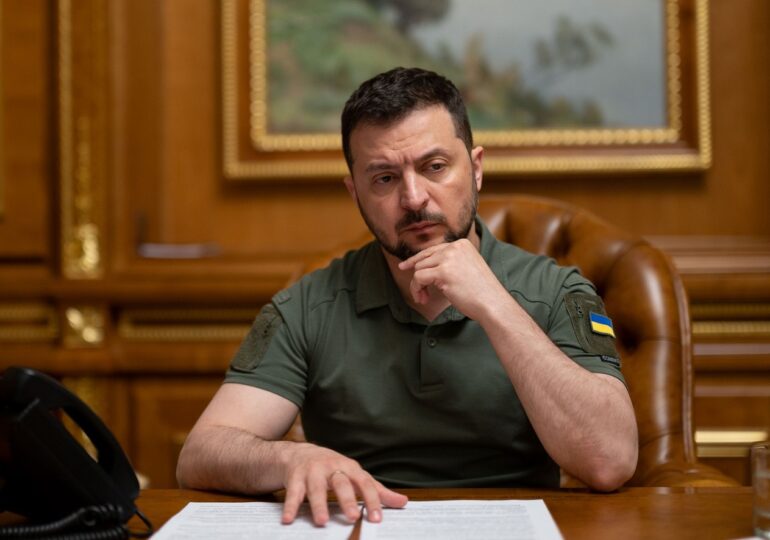Despite the celebration of the „progress” made in the Geneva talks, European countries remain either too weak or too timid to save Ukraine, even with a loan based on frozen Russian assets.
European officials congratulated themselves on Monday after the Geneva talks, which suggested that Donald Trump will take into account their concerns about the risk of an unfavorable peace deal for Ukraine. „While there is still work to be done, there is now a solid foundation to move forward,” said European Commission President Ursula von der Leyen, hailing the „good progress” resulting from the „strong European presence” at the talks.
The fact that the top advisers of the EU and the United Kingdom were invited to Sunday's meeting in Switzerland, after being excluded from the American plan initially in 28 points - considered so biased that it would have encouraged new Russian attacks - was seen as "progress," according to an analysis by Politico.
But the enthusiasm quickly faded.
On Monday evening, Russia rejected the updated text of the agreement, rewritten with the contribution of Ukraine and its allies during the prolonged discussions with US Secretary of State Marco Rubio.
Now, the risk for Ukraine is that Vladimir Putin will bring the American president back to the initial position: a ceasefire agreement in 28 points that caused panic in Brussels because it would force Kiev to cede vast territories to Moscow, give up hope of joining NATO, and reduce its army from nearly a million soldiers to 600,000.
If this happens, Ukrainian President Volodymyr Zelensky will face a grim choice: to accept the negotiated offer from Trump and Putin or to risk the country's future by relying on the help of European friends.
The same friends who, after nearly four years of war, do not send troops, nor the desired weapons, and not even use the frozen Russian assets in their banks to help Ukraine supply itself.
Europe's Reluctance
For some American Republicans, Europeans who oppose Trump's agreement and the necessary compromises are deluding themselves. "What is the alternative?" said Greg Swenson, President of Republicans Overseas in the UK, to Politico.
"You can talk nicely, you can go to all these diplomatic meetings, and you can send the best people to Geneva, but the only way to beat Putin is to fight - and none of them are willing to do that. So it's all just talk. It sounds great when you talk about democracy and defending Ukraine, but they simply aren't willing to do it," Swenson said.
Politicians and European officials would contest this idea, citing the huge sums of money and weapons sent to Kiev in almost four years, as well as the economic difficulties caused by reduced trade with Russia, especially in fossil fuels.
Since the US reduced its support, Europe has visibly moved to fill the gap.
However, in reality, Trump's initial proposal panicked officials and diplomats in Brussels and other capitals because they knew that Zelensky could not rely solely on Europe.
Frozen Assets: Total Impasse
Discussions are intensifying within the European Commission and EU governments, especially in Belgium, but so far, no real progress has been made, say several officials.
Some diplomats hope that the pressure exerted by Trump will force Belgium and other reluctant states to accept the plan for a loan based on frozen assets. An idea still under consideration is the use of a portion of these assets in combination with common European bonds or direct financial contributions from EU governments.
But there are fears that the entire concept of the loan for Ukraine could collapse if the final peace plan explicitly mentions the use of these funds.
The initial project suggested using the assets in an investment campaign in Ukraine, with half of the profits going to the US - a concept rejected by Europeans as "scandalous." And once the sanctions against Russia are lifted, Euroclear - the financial depository in Belgium holding the immobilized assets - could be forced to return the money to Moscow.
This could leave European taxpayers to foot the bill, a prospect weighing heavily in the calculations of EU governments.
Who Guards the Peace?
Earlier this year, French President Emmanuel Macron and British Prime Minister Keir Starmer tried to build support for an international peacekeeping force made up of voluntary states - a "coalition of the willing." A year earlier, Macron even suggested the idea of "boots on the ground" before the conflict ended.
Now he doesn't talk like that anymore.
In France, a strong call last week from the new army chief, Fabien Mandon, to mayors to prepare citizens for a possible war with Russia sparked controversy and political condemnation. Mandon warned that if France "is not ready to accept the loss of its children, to suffer economically because priorities will shift to defense production, then we are in danger."
Macron tried to calm the situation, saying that Mandon's statements were taken out of context.
In Germany, Foreign Minister Johann Wadephul said that Berlin "already brings a special contribution to the eastern flank" by stationing an operational brigade in Lithuania. "The entire Baltic region is a key area on which the Bundeswehr will focus. I think this represents sufficient and comprehensive support for Ukraine."
The Ukrainians would have wanted a deeper commitment on their own territory, but Western Europeans are afraid to risk significant losses by sending soldiers to the front line.
"At least Trump is sincere about this. We could beat Russia. We would beat them, I believe, quickly, assuming they wouldn't use nuclear weapons. We would beat Russia, but many people would die," Swenson said.
G.P.

